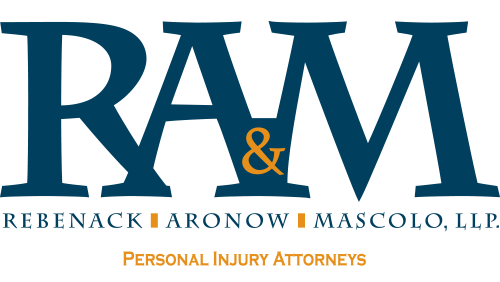Stay Safe Around Large Trucks This Season
The number of fatalities on U.S. roads coming from large truck-related crashes went up by 9% in 2018. These accidents are actually much more deadly for drivers and passengers of smaller non-commercial vehicles. Since most of the fatal accidents for any size of vehicle occur between June and September, now is the time to prepare for greater vigilance on the road.
Why Truck Accidents Are More Common During Warmer Months
Many drivers breathe a sigh of relief when the dangers of icy roads dissipate with the arrival of spring. However, spring brings an entirely different set of driving dangers. Since the weather is warmer, there are more motorists on the road who want to travel. Camping, fishing, boating and outdoor activities bring more people onto the roads during the warmer months. This also means that motorists and semitruck drivers have more boat trailers and slow-moving campers to deal with.
With the influx of motorists on the streets and highways, everyone’s crash risk increases. Also, there are more pedestrians, bicyclists and motorcyclists along city streets when the weather is warmer. Intermittent rainy or foggy days and nights add to the dangers of spring driving. Combining these hazards with the existing dangers of sharing the road with big trucks means that there will be another increase in trucking accident fatalities if truckers, motorists and pedestrians do not work together to make the roads safer.
How to Avoid Spring Truck Accidents
Although tips to avoid truck accidents can be useful to practice all year, it’s especially important to review them and start putting them into practice now. Since the late spring and summer months are the most common times for fatal accidents, you can reduce your chances of being seriously injured by remembering the following tips.
Avoid Blind Spots

If you travel on freeways often, be mindful as you approach trucks from either side. Assume that the truck driver cannot see you while you are attempting to pass on the left or right side. If someone is driving slow in front of you, wait until that motorist is ahead of the truck to pass safely. Many accidents occur when a truck veers into another lane while a car is driving slowly alongside it. When you pass the truck, speed up a little if you are going about the same speed. The key idea to remember is to not spend too much time driving alongside a big truck. Also, be mindful of rear blind spots. Assume that the driver cannot see you for at least 30 feet behind the trailer. To avoid potentially rear-ending the semi if it brakes suddenly, stay about four car lengths behind until you can safely pass.
Give Truck Drivers Space
In addition to the advice above, give truck drivers several car lengths of space at all times. In some instances, traffic congestion may put you close to a big rig. If you cannot pass it to get and stay ahead, consider slowing down to give the trucker plenty of space. This is especially important on a windy day. Another common problem is tire blowouts. If you are too close to a truck when a tire blows out, it could swerve and hit you. Trucks also brake suddenly. Be aware of motorists who are near the truck and how they might react if the truck brakes suddenly. Even if the truck is too far enough away to hit you directly, a nearby motorist who is not paying attention could try to swerve to avoid hitting the truck and could cause an accident.
Merge Cautiously
As you enter freeways or highways with ramps, do not merge in front of a big rig that’s in your path if traffic is moving slowly. It’s difficult for a truck to slow down even if it’s not moving at a high speed. If the trailer is carrying a load, safely slowing down will take an even longer time. While it may not be ideal to follow behind a big truck, following at a safe distance until you can pass is a much better practice. If you merge in front of the truck, you risk being rear-ended. Such an accident could cause a chain reaction that involves many vehicles on the freeway.
Lower Your Brights
If you drive at night and pass trucks frequently, be mindful to lower your bright lights. Not doing so when you pass other car drivers may only annoy them. However, brights reflect very strongly off big truck mirrors. This can temporarily blind the truck driver and lead to serious accidents. Remember to lower your brights when you are approaching a semi from behind to pass it. Furthermore, it’s important to dim down when you are approaching a truck that’s traveling in the opposite direction.
Always Use Your Signals
Truck drivers who pass other large trucks often leave their signals on until the other driver flashes the headlights. This is a way of one driver letting another know that it’s safe to merge back over. Although you as a motorist do not need to do this, it’s important to let truck drivers know when you are merging after you pass. Also, be sure to put your turn signal on as far in advance as possible before you turn or merge onto an off-ramp. A large truck may need to brake to maintain a safe distance behind you.
Choose Your Travel Times Carefully
When you travel for work or social obligations, you may not have a choice as to what time you are on the road. However, if your schedule allows some flexibility, avoid traveling between noon and 3 p.m. According to the IIHS, most fatal truck accidents occur during those hours. Also, fatal truck accidents are more common on Thursdays and Fridays. Plan your routes in advance, and give yourself plenty of time to avoid the temptation of speeding.
Eliminate Distractions Behind the Wheel
One of the most effective ways to enhance your safety at all times is to avoid distractions such as using your cellphone and eating. Even when you use the best driving practices to protect yourself on the road, poor judgment and sudden moves from trucks can lead to serious accidents. If you notice that a truck driver is distracted, be sure to keep a safe distance.
When Do You Need a Truck Accident Attorney?
If you are involved in a truck accident because of the negligence of the truck driver, you may be able to collect compensation for your injuries. It’s important to work with an attorney who understands trucking law. Such lawyers are familiar with truck accident injuries and know how to help victims recover financially. New Jersey trucking law attorneys do not collect compensation until the plaintiff gets paid. This will help you handle your living expenses while you wait for a judgment. To speak to truck accident attorneys, contact the law firm of Rebenack Aronow & Mascolo at (732) 247-3600 in Brunswick, NJ, or at (908) 448-2560 in Somerville, NJ. We can provide you with a free and confidential consultation.


